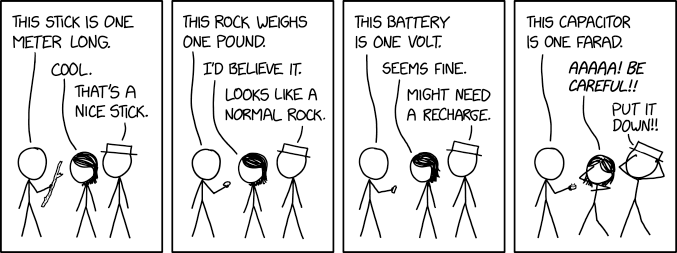Change with the Change
During your tenure GMing, your life is going to force you to change your GMing style several times. There are style changes, such as learning to run games a certain way. I am not talking about that; you can always change your style willingly, and honestly, it’s good to do so. I am talking about times when your lifestyle is not congruent with your GMing style, and the friction of those things creates issues with your gaming. It could be too little time to prep, disruptions to concurrent sessions, changes in the kinds of games you run, or how you run them. For the vast majority of us, GMing is a hobby and as such, has to fit into the spaces within our lives that are unoccupied. The trick is not to resist the change and try to desperately hang onto how you’ve always done it, but rather, see the time for change and embrace it. So, let’s talk about it.
When Change Arrives On Your Doorstep
Change is a constant in life. As someone who adores constants, I am also wise enough to know that a constant is a calm stretch of road before the bumps and curves start again. You enjoy it while you have it. We rarely are proactive about the major changes in life that affect our gaming. Often, the change occurs, and then when we realize it is affecting our gaming and then we set about making changes. Only once in my GMing tenure did I get a warning about an upcoming change to my life that would necessitate a change to my GMing (that you can read in the forward of Never Unprepared).
In most cases, you are going to be reacting to what the change has done to your gaming. The most common sign is not having enough time for your prep or your game. Before, you had the time you needed to do what you needed to do to both prep and run the game. Now, you seem to always be strapped for time, which is creating a bit of stress to get the game going.
That is what recently happened to me. Earlier this year, I was promoted to a management position and became part of the leadership team at my company. I was able to do so without a significant change to my work hours. I pretty much work the same amount of time each day. What I failed to recognize was the added stress and emotional labor of the position, which resulted in my getting home more drained than before the promotion. So while I had time to prep, I did not have the energy to do so, and it was getting harder to get them to the table. I was feeling the stress of trying to get the game together.
At first, I did not recognize what was going on. Months went by, and I struggled to get games to the table, only aided by the fact that my group was having scheduling problems, resulting in a lot of missed sessions, giving me more time to get my prep done.
The takeaway is that if things were working and now you are struggling, you may have encountered a change, and it might be time to re-evaluate.
Reflection Time
Months after my promotion and I realize that I am struggling to get my games to the table. I now needed to figure out what was wrong before I could fix it. So I sat and thought about it, and looked how how my recent behavior and actions. This requires some time to think and to be honest with yourself.
For me, the struggle was that I am literally the Never Unprepared guy. While my players don’t hold that over me, I do. I could not bear the idea that I could not get prepared for a game. So when I realized that it was prepping the game that was getting to me that I had to be honest and admit the problem.
I did not have that flash of insight right away; in fact, it was the last insight I had. My first conclusions about my problems were external; I was blaming the lack of consistent sessions for dampening the emotional commitment to the game, leading to my struggling. But the more I picked at the issue, and the more honest I became, I realized that my issues were feeling like I did not have the time or energy to prep during the week.
Listing Requirements
Once I had discovered my problem, I was nearly ready to work on solutions. In order to better focus my efforts, I made a list of requirements and constraints. Requirements are things that I need, and constraints, the external factors that I have to work within.
So my main requirement was that I needed a game that required low-to-no prep. I need a game that requires me to use less than 2 hours during the week to get a session together.
There were two constraints I had to deal with. One, my group is going through a thing where not all of us can make it to the game, so the game we play has to be highly resistant to missing players, in both rules and play style. Second, my gaming group averages about 2.5-3 hours of play per session, based on when we can play and that we like to have a shared meal and socialize before the game.
I did not want to, at this time, put any requirements or constraints on systems, genre, etc, but those are things you might need to list.
The reason for having this list is so that you can be clear on what you are trying to fix and what things you need to factor into your solution.
Work the Problem
Starting with my requirement, I looked at what I would need to do to solve this problem; the need for a low-to-no prep game.
The most obvious choice for me was to find a game that had this built in. A game whose mechanics supported this style of play. It’s not the only solution to this. I could have gone the route of keeping a system and making more drastic cuts to my prep. I could have also favored published adventures over anything homemade, but my experience is that there is still plenty of prep in a prepared adventure, it’s just different than writing one.
With a solution in mind, I made a quick list of games that supported low-to-no prep, and quickly arrived at Forged in the Dark games. Their system is great for low-to-no prep gaming.
Now I needed to see if my solution supported my constraints. First, 2.5-3 hr play sessions. FitD games work great in this timeframe, you can easily get through one Score, Downtime, and some Freeplay (for Blades) in that time frame.
Second, the missing player problem. The solution to this is to run a complete cycle of play each time we meet so that players who can’t make it to the next session are not stuck in the middle of the story. As mentioned above, if we run a full cycle each session, then the player can miss the following session. In addition, the Score does not require specific playbooks, so if someone is missing, the game won’t grind to a halt because of missing abilities.
By coming up with a solution and making sure it fits inside your constraints, you ensure that your solution solves all your problems without creating others.
My Solution
After working the problem a bit and coming to the players with some game ideas, we eventually selected Blades in the Dark. We are going to structure our sessions to be one full play cycle (Score, Downtime, Free Play). We also set our Quorum to allow for more players to miss the sessions and keep the game running, even if multiple people can’t make it.
I have some work to do about adapting my prep for this game, but my focus is going to be on only spending 1-2 hours to produce a session, which will be one play cycle. For running the game, I will have to make sure we keep good focus, to keep the sessions productive, so that we complete that cycle, each session.
Now’s The Time For Change
People want to know the secret to remaining in the hobby for so long. Mine is to change with change. I have changed systems and styles of play over my 43 years of gaming. When life changes come, embrace the change, don’t resist it. If you are getting married, having a kid, starting your first career job, or taking that new position, recognize that with it, your life is going to change, and change your gaming so that it always has a place in your life.
If you can be proactive, that is great, but even if you find yourself reacting, seeing yourself struggling to game, embrace the change. Take some time to reflect on what is and is not working, list your requirements and your constraints, and then work the problem. Make the necessary changes and keep a space in your life for gaming.
When has your life changed in a way that affected how you gamed? What was the change? What did you change in your gaming?









